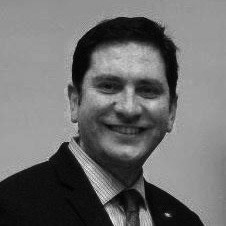
In early 2011, a national pharmacovigilance unit was established as a small department in the Syrian ministry of health. By the end of that year, the unit was linked to public hospitals, national health programmes, and local pharmaceutical manufacturers. With these elements in place, Syria was admitted as an associate member of the WHO Programme for International Drug Monitoring in June 2012.
The unit made a solid start. It created an official online adverse drug reaction reporting form, initiated training programmes, assigned pharmacovigilance officers in government hospitals, and mandated all pharmaceutical companies working in Syria to commission pharmacovigilance officers.
But, as the Syrian crisis escalated, sanctions deprived the country of many medicines, forcing the country to seek alternatives. Many major local pharmaceutical manufacturers were out of service due to increased violence in the north, which hampered medicines accessibility in the country.
Accordingly, health authorities’ priorities shifted towards providing access to basic medicines and health services. Unfortun-ately, this came at the expense of the national pharmacovigilance programme. Many of the local pharmacovigilance staff were moved to other departments and the national programme was rendered non-functional.
But while many staff assumed other roles in the ministry, they kept their commitment to promoting the goals and importance of the programme to decision makers in the country. In early 2017, the unit was reinstated in the ministry of health, bringing back some of the original staff.
“Three professional staff work now at the Pharmacovigilance Unit, one pharmacist with a PhD in clinical pharmacy, one physician with an MSc in pharmacology, and one pharmacy technician,” said the unit’s head, Linda Hsien.
With a team back in place, the unit has now overcome compatibility issues between the national and international reporting formats.
“The Pharmacovigilance Unit uses VigiFlow to build the national database and to submit reports to the WHO database,” said Dr Hsien.
In October 2018, Syria’s pharmacovigilance unit became the 133rd member of the WHO Programme for International Drug Monitoring. Dr Hsien explained that the unit now has a network of representatives in the majority of the country’s public hospitals, provides lectures and training courses on pharmacovigilance principles and ADR reporting, and receives ADR reports from both healthcare professionals and patients.
Many challenges still await: awareness of the programme and participation by different stakeholders remains limited, training is needed to increase human resources, and tools and technologies still need to be developed to encourage reporting and active participation. Nevertheless, despite years of hardship, instability, and conflict, committed Syrian professionals have achieved international recognition for their national pharmacovigilance programme.
Read more:




